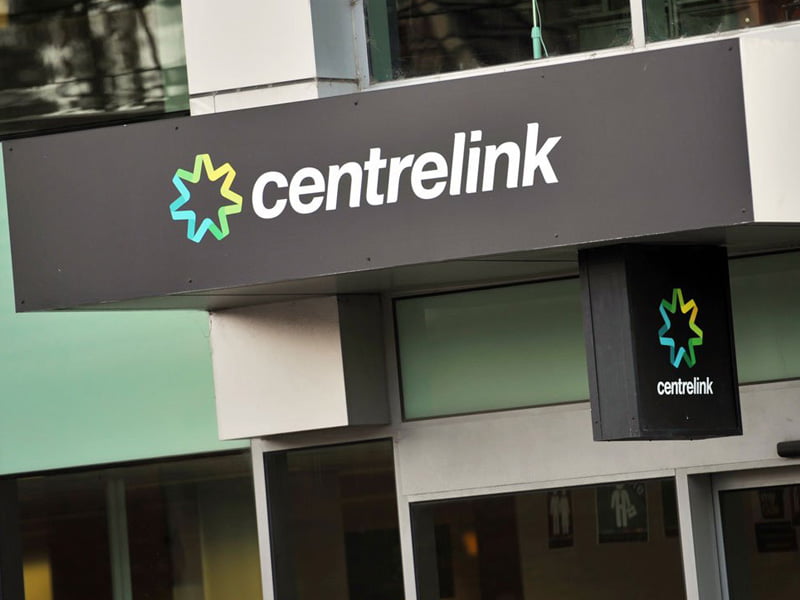The government will pay $112 million in compensation to 400,000 victims of its robodebt scheme as part of a $1.2 billion class action lawsuit settlement over its use of an “imperfect computer algorithm” to issue debts.
Gordon Legal launched a class action against robodebt more than a year ago, arguing the automated data matching and debt recovery program was illegal and led to hundreds of millions of dollars being unlawfully taken from Australians.
The case was settled on Monday, with the federal government to provide a total of $1.2 billion to the 400,000 robodebt victims included in the class action. This includes compensation to those individuals totalling $112 million, along with the $720 million in debts currently being refunded, and the scrapping of debts through the scheme worth $400 million.
Gordon Legal said this was an “excellent outcome” for the victims of robodebt.

In settling the case, the government has not admitted any liability or acceptance that anyone involved with the scheme knew it was unlawful when implementing it.
The Online Compliance Intervention system, dubbed robodebt, was launched by the Coalition in 2016 and used an algorithm to average out a welfare recipient’s yearly income using data from the ATO and cross-matching this with income reported to Centrelink.
If the system detected a discrepancy, a please explain notice was automatically issued to the individual, placing the onus on them to prove a debt didn’t exist, before being issued a repayment notice.
The system was found to regularly incorrectly match this data and produce inaccurate or non-existent debts.
After a number of legal challenges, the government late last year backed away from key elements of the scheme, announcing that debts would no longer be raised based solely on the ATO data, with Centrelink staff to investigate a discrepancy before a debt notice is issued.
In May this year it was announced that the government would be refunding $700 million in robodebts, accounting for nearly 500,000 debts that it admitted were raised illegally. These were debts identified wholly or partially through averaged ATO income data. The refunding of these debts kicked off in July and is ongoing.
The class action has continued throughout this, and the case was set for its first day in court on Monday.
It was announced on Monday that the government and Gordon Legal had settled the case, with a total of $1.2 billion to be paid back to approximately 400,000 people involved with the robodebt class action.
The compensation and remaining refunds will be paid next year.
Not all individuals subject to a robodebt will receive compensation, and the size of this payment will be based on the size of the debt unlawfully issued and the time the individual was without this money.
To be eligible, an individual had to have had a debt calculated using averaged ATO data, and had made repayments to this debt. The amount these individuals will receive will be determined by how much money they repaid or had recovered from them, and how long they were without this money.
“Those group members who paid back more and were without their money for longer will receive a larger share of the compensation, compared to those who paid back less, and were without their money for a shorter time. This is to ensure that overall, the compensation paid to group members is fair and equitable,” Gordon Legal said.
If an individual was issued a debt notice based on ATO averaging but had not repaid this, the debt will be “zeroed” and they won’t be required to repay it, but they will not receive any compensation.
For individuals issued with a debt that was later recalculated, they will receive compensation based on how long it took for the debt to be accurately recalculated, but won’t be refunded the amount repaid.
Individuals who had a debt calculated using payslips or bank statement information rather than ATO averages will not be paid a refund or compensation.
Gordon Legal partner Andrew Grech offered thanks to shadow government services minister Bill Shorten, Victoria Legal Aid and the Federal Court.
“Our clients have asked us to especially thank Bill Shorten for his relentless pursuit of this issue, for his compassion over the last four years for vulnerable Australians hurt by robodebt and for bringing the case to Gordon Legal’s attention when it seemed that all other options had been exhausted and only resorting to the legal system would help,” Mr Grech said.
“Once again we would like to acknowledge the work of the legal team at Victoria Legal Aid, who worked tirelessly to bring a number of individual claims before the Federal Court before the Class Action was commenced as well as the efforts of many community legal services in the Welfare Rights Network, such as Social Security Rights Victoria who have been advocating for victims of robodebt for the last few years.
“Our clients would also like us to acknowledge the Federal Court of Australia for its preparedness to schedule frequent case management hearings and to facilitate a trial of the proceedings so quickly, notwithstanding the difficult circumstances of the Melbourne COVID-19 lockdown.”
Do you know more? Contact James Riley via Email.


How much of that headline “compenation” figure will go to filling the lawyers’ pockets?